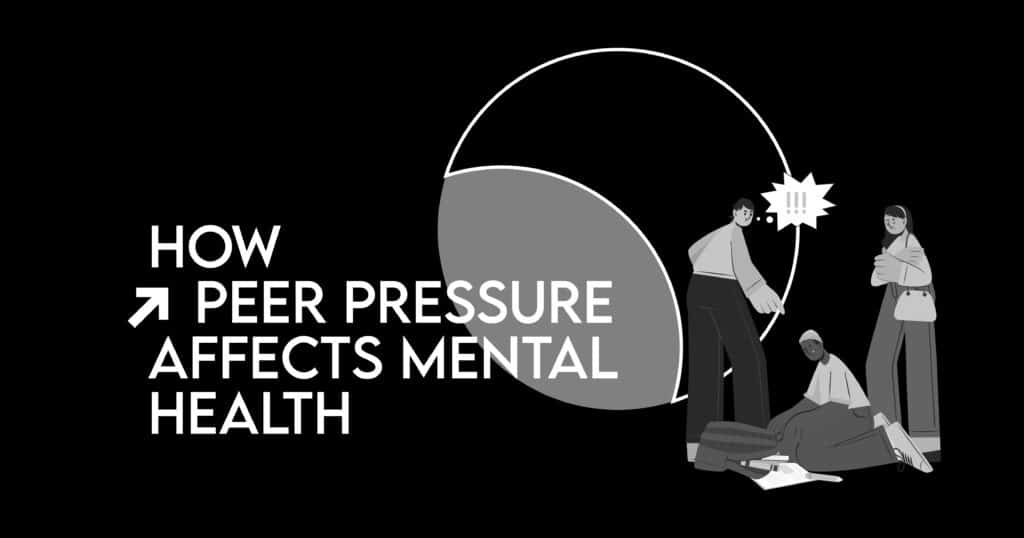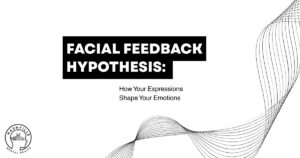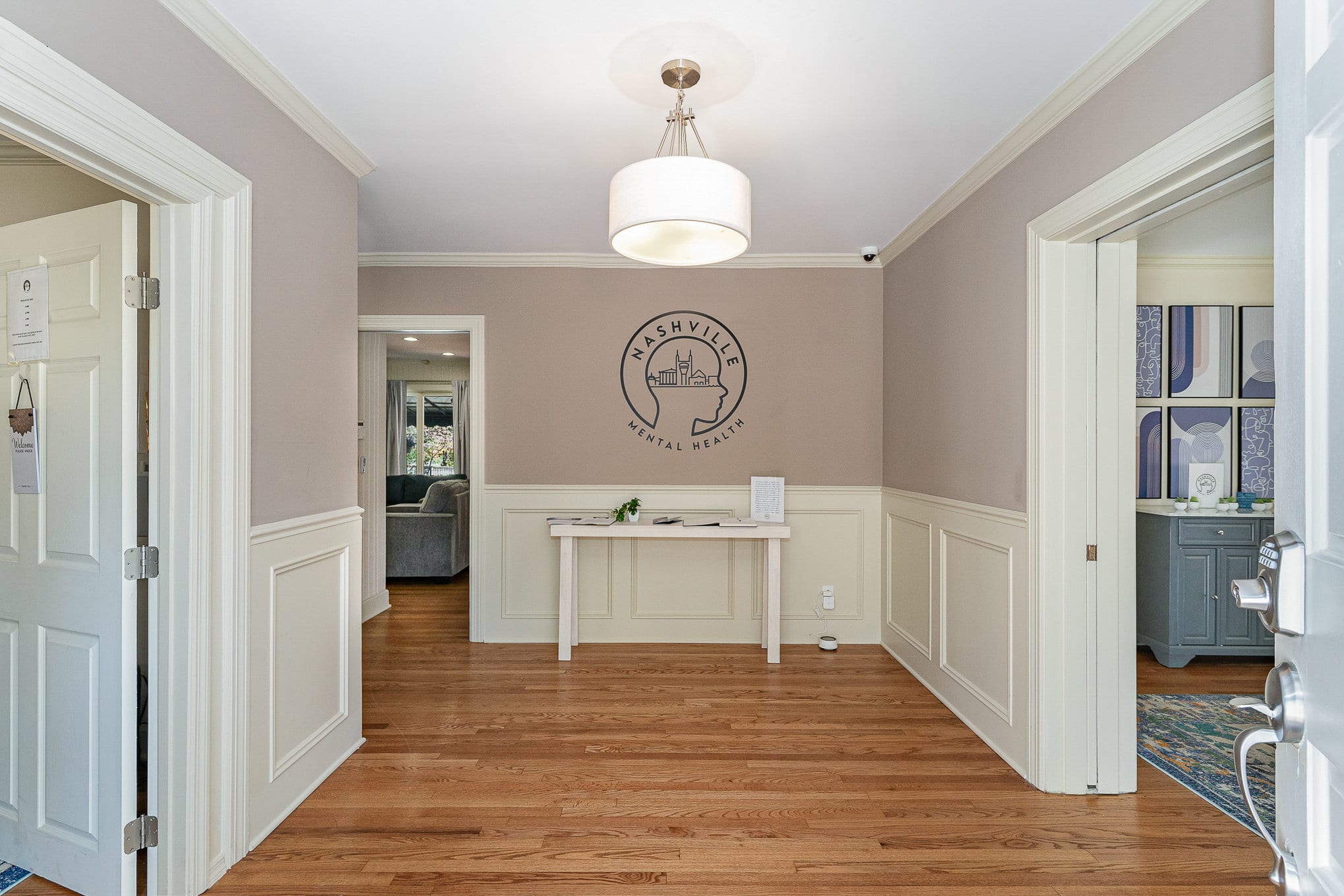Peer pressure is something almost everyone experiences at some point in their lives. Whether at school or at work, coupled with nowadays, in all forms of social media interactions, we are often led by the behaviors and attitudes of people around us.
Although usually placed in a negative context, it is worth knowing that there could be positive aspects of peer pressure as well. In this article, we’ll dive into the effects of peer pressure on mental health, how it impacts our well-being, and explore practical ways to manage it.
What Is Peer Pressure?
Peer pressure is the influence of others in our age or social circle over our decisions, behavior, or even identity. More exactly, it is a great social force based on the human instinct of desire and need for belonging. A person pressures you to do something, directly or indirectly and you just have an unspoken feeling about the other person’s actions.
As much as peer pressure and mental health have been associated with negative correlations, this influence can sometimes push individuals toward positive behaviors. Exercising-loving friends will push people out of the group to develop better habits, and a company that cares for mental health will motivate workers to realize and create balance in their lives.
Nashville Mental Health
Types of Peer Pressure. Positive Vs. Negative
Recognizing whether peer influence is positive or negative on mental health can help us understand its impact and how these dynamics can shape our lives.
Positive Peer Pressure
Positive peer pressure is when peers encourage good behaviors that improve well-being and self-esteem. For example, friends challenging each other to get good grades in school, towards personal goals, or having a healthy lifestyle shows positive peer pressure. It raises the feeling of confidence, motivates people, and strengthens social relationships.
Negative Peer Pressure
This type of peer pressure forces individuals towards acts that may hurt. Some examples of these activities include abusiveness in drugs, unhealthy risk-taking, or behaviors that violate people’s sentiments. Generally, adverse peer pressure is aligned with expressions like anxiety and self-doubt with feelings of guilt. Human beings, between practicing their own beliefs and the desire to stay within the group, contradict each other.
Although positive peer pressure can promote healthier mental habits, negative peer pressure is damaging and contributes to stress and low self-esteem problems.
Psychological Impact of Peer Pressure on Mental Health
Peer pressure has the most profound influence on the human mind because it makes one compare oneself to peers whom he or she looks up to, leading to consideration of self-doubt, anxiety, and stress.
Most suffer from mental health and social influence when they try to meet the expectations set by their peers. A kind of inadequacy will develop, which fuels low self-esteem, especially when one feels unable to meet these standards.
In extreme cases, repeated exposure to peer pressure anxiety can further develop in some people into more severe mental health conditions such as depression.
Peer Pressure and Anxiety: A Growing Concern
Among the most common results of peer pressure and mental health stressors is anxiety. In other words, peer pressure anxiety is what one fears not to make it or be judged by others, which stands for feeling overwhelmed and isolated.

Symptoms of peer pressure anxiety may include:
- Social withdrawal. Social isolation results from the fear of being judged.
- Nervousness. Constant worry about others’ opinions
- Low self-esteem. A self-perceived weakness relative to age mates
- Sleep issues. Anxiety can make a person insomnia-prone or render them sleep-inadequate.
Such increased prevalence of anxiety disorders points out the fact that in adolescents and young adults, anxiety disorders are on the rise, easily prompted by other influence mongers. Chronic stressors are aggravated by constant pressure on them to “earn” validation from others or be “good enough” throughout their lives.
Depression and Peer Influence
Peer influence and mental health also pose a risk factor for depression, especially if the individual feels ostracized, excluded, or forced into doing things that make them uncomfortable. The painful feelings of loneliness or not quite getting it right can easily become overwhelming when one feels like an outcast.
For instance, frequent exposure to situations in which the individual thinks he does not live up to his peers will contribute to feelings of being worthless and hopeless, symptoms of depression. Understanding of effects of peer pressure on the mental health and prevention of depression among young people as they continue building their identity and sense of self-worth.
How Social Media Amplifies Peer Pressure
Social media has transformed into a super amplifier of peer pressure and mental health issues. Instagram, Snapchat, or TikTok makes the world an “always-on” environment where folks are constantly able to compare themselves. Massive amounts of comparison create anxiety, problems with self-esteem, and even symptoms of depression.
The social media mentality all too often tends to convince people that everyone else’s lives are some better version of reality. The pressure to “keep up” can be overwhelming when presented with unrealistic standards by many influencers. The stress of making appearances successful, beautiful, and interesting online becomes another kind of peer pressure anxiety for many students.
Nashville Mental Health
Peer Pressure Among Teens Vs. Adults
Although peer pressure cuts across all age ranges, intensity and the type of pressure vary in nature significantly among teens and adults.
Teens and Peer Pressure
For teenagers, fitting in is very essential as they learn to identify themselves and build social skills. Peer influence during these years can be overwhelming, particularly because teens tend to indulge in risk-taking behaviors if they feel they are under peer pressure. The urge to belong overrules their concerns about what might befall them due to bad consequences, making some teens compromise on their mental well-being.
Adults and Peer Pressure
Adults experience peer pressure too, though it often centers around different issues, such as career achievements, lifestyle choices, or family life. Social comparisons at this stage may lead to stress or dissatisfaction if individuals feel they haven’t achieved as much as their peers. Adults may also feel pressure to conform to societal expectations, which can lead to anxiety, stress, and a sense of inadequacy.
Signs That Peer Pressure Is Affecting Mental Health
Recognizing the signs that peer pressure is impacting mental health is crucial. Below are some indicators that someone might be struggling with peer pressure anxiety or other stressors due to peer influence:
- Behavioral changes. Sudden changes in behavior, such as withdrawal or rebelliousness, can indicate peer-related stress.
- Mood swings. Irritability, sadness, or frustration may result from the emotional toll of peer pressure.
- Avoidance of social situations. Someone struggling with peer influence on mental health may begin to avoid social gatherings or interactions to escape pressure.
- Lowered self-esteem. Constant comparison can lead to self-doubt and low self-confidence.
If any of these signs are observed, it may be beneficial to seek support or start implementing strategies to reduce the influence of peer pressure.
Coping Strategies to Handle Peer Pressure
Managing peer pressure and mental health concerns starts with implementing effective coping strategies. Here are some methods to resist negative peer influence.
| Set personal boundaries | Define acceptable and unacceptable for yourself, and communicate this to others. |
| Practice assertiveness | Learn to say “no” confidently without feeling guilty. |
| Choose friends wisely | Surround yourself with people who respect your boundaries and encourage positive behaviors. |
| Engage in positive self-talk | Remind yourself of your strengths and values to counter negative peer influence. |
| Seek professional help | Therapy or counseling can guide in handling peer pressure, anxiety, and other mental health issues. |
These coping mechanisms can reduce the adverse effects of peer pressure and help individuals maintain a healthy mental state.
The Role of Support Systems in Resisting Peer Pressure
A good support network is a very powerful resistance mechanism to negative peer pressure. Friends, family members, mentors, and even mental health professionals are there to guide people through most of the frustrations that arise from peer influence.
Support systems provide a safe environment to vent feelings, fears, and frustrations. They also remind people that they are not alone, relieving peer pressure anxiety and enabling easy standing by one’s values.

Building Resilience Against Peer Pressure
Finally, building resilience is key to withstanding the effects of peer pressure. By cultivating inner strength, individuals can make choices that align with their values, regardless of outside influence.
Here are some ways to build resilience:
- Self-reflection. Regularly assess your goals, values, and boundaries to reinforce your sense of self.
- Practice mindfulness. Mindfulness techniques can reduce stress and increase emotional awareness, helping people recognize when they’re affected by peer pressure.
- Set personal goals. Personal goals can help you stay focused and less influenced by others’ expectations.
- Build self-confidence. Work on building a positive self-image that is independent of peer approval.
By strengthening resilience, people can feel more empowered to resist negative peer influences and protect their mental health.
Call to Action
Peer pressure is undeniably a part of life; the more one learns about it, the better one will be able to deal with it. A person must be aware of signs of peer pressure anxiety to protect his or her mental well-being and align choices with values. In case you or your friends are suffering from peer influence on mental health, remember that help is there for the taking.
Reach out to a mental health professional for the right guidance, or share this article with friends and family to raise awareness about the ill effects of peer pressure on mental health. Together, we can create an appreciative community that celebrates individuality as much as it takes well-being over conformity.
Nashville Mental Health
FAQs
- What is peer pressure, and how does it affect mental health?
Peer pressure is the influence of people around us, including friends classmates, or even workmates, who have a combined effect on our thinking, acting, and decision-making. Healthy behaviors ought to be the result of positive peer pressure; negative peer pressure, on its part, becomes the source of mental health issues linked to diseases like low self-esteem and depression.
- Can peer pressure be positive?
Yes, peer pressure can be positive. Positive peer pressure happens when peers encourage the supporting behavior of staying healthy, studying, or practicing kindness. Such peer influence helps people acquire better self-esteem, motivation, and social relations.
- How does peer pressure contribute to anxiety?
Peer pressure can lead to a condition of anxiety by compelling more people to act a certain way or even think in specific standards to gain acceptance. People living under such expectations become victims of peer pressure anxiety, where they are subjected to nervousness, social withdrawal, and worrying about judgment or rejection.
- How does peer pressure affect teenagers differently from adults?
Teenagers are particularly vulnerable to peer pressure as they are still forming their identities and social skills. During this stage, they may prioritize fitting in, sometimes at the expense of their mental health. Adults also experience peer pressure, which often relates to areas like career success, relationships, and lifestyle choices, leading to stress or self-doubt.
- How does social media impact peer pressure and mental health?
Peer pressure is amplified through social media since a person is constantly comparing themselves to others. The online “perfect people” pressure may lead to higher stress levels due to lower self-esteem and sometimes anxiety or depression when people feel that they cannot compare with the world presented by social media.












